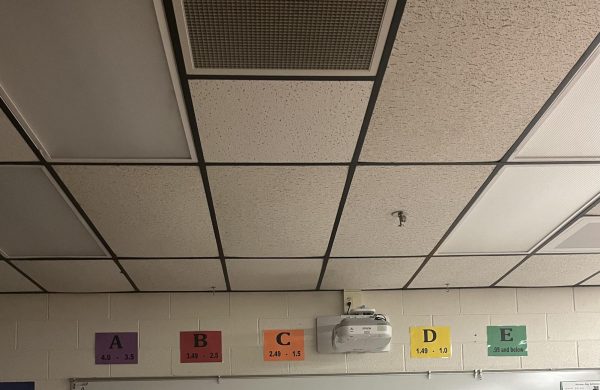The Answer is 42 – Cue the Existentialism
According to my brain, there are two times of day when it is appropriate to fall into a deep bout of existentialism. One is at three o’clock in the morning. The other is in … math class.
Now, I would like to make it known to any adult reading this that I 100% pay attention in class all the time. But there is something about numbers and science that has me spiraling into a thought that eventually leads to the question “Is anything truly worth the investigation and classification of mathematics and science?”
I’m sure that is a question that you’ve had before. It’s not an ideal one to have when you’ve got 10 minutes left on your integrals test, though.
But this “existentialism” is my favorite aspect of mathematics and science.
Like the concept of zero and infinity, for example. They’re two polar opposites. Objects can be measured to be a length of zero and infinity at the same time (theoretically – forget about practicality for a second, after all our goal here is a mini-existential crisis).
Take us, for example. You and I are utterly, utterly gigantic compared to a carbon atom. For all intents and purposes, you measure infinity and the atom measures zero. But you, who we have already established to be infinity, are nothing compared to the size of the Sun. In this scenario, you are zero and the Sun is infinity. The Sun is nothing compared to the Milky Way, which is nothing compared to the observable universe.
You and I are capable of being nothing and everything at the same time.
Infinity is the biggest concept to exist. Infinity is Infinity. And yet there can always be another infinity bigger than it. Zero is the smallest absolute value to exist. Zero is Zero. And yet there can always be another zero smaller than it.
But eventually something has to be the smallest zero, and something has to be the biggest infinity … Right?
I have no idea. But it is fun to think about.
Another example that always gets me is the concept of time, and how it goes on forever. It’s probably the most cliché scientific-philosophical concept to think about, but that doesn’t mean it’s not interesting.
Like how, even after everything in the universe is dead and gone, when the last of the stars and galaxies fizzle out into nothing, there’s still time. There’ll be nothing to reference it off of. Millions and billions of years will slowly become insignificant. But time is forever. Even if space isn’t.
With that, you may consider the fact that perhaps space did not exist prior to the Big Bang. Space is not “nothing”, it’s “something,” and before the Big Bang there theoretically was nothing. That right there leads to another few days of wondering what may have existed before the universe.
This is the way I sometimes like to think about math and science.
You and I as thinkers are forced to entertain the idea that maybe some of the known information in math and science could be wrong and some of the obscure thought processes could be right, while also retaining some semblance of logical thinking. It’s a huge challenge, but more than that it’s fun to simply think about and figure out your own theories.
So catch me thinking about the inside of black holes and the existence of a fourth dimension in my math class. If you see me staring off into the distance looking slightly panicked, now you know why.










